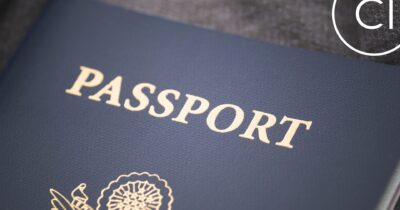

In an era where global mobility and financial security are more interconnected than ever, the allure of a second passport has captured the attention of the ultra-rich, even those with strong passports. This comes as no surprise, even the wealthy are not immune to the privacy, migration, and financial regulations implemented by their government, which they may not agree with or could potentially put their wealth portfolio at risk.
This trend has been especially noticeable among Americans in recent years. Despite holding a passport ranked 7th in the world by the 2024 Passport Index, granting them visa-free access to at least 172 countries, many affluent Americans are seeking dual citizenship or acquiring new citizenship through investment. Popular Citizenship by Investment programs include Caribbean nations like Dominica, St. Kitts & Nevis, Grenada, St. Lucia, and Antigua, as well as Turkey, Vanuatu, and the EU country of Malta. These programs are fully legal with costs ranging from USD 130,000 to several million dollars.
The increasingly complicated U.S. tax landscape
The driving force behind this unfolding narrative can be gleaned from reports noting that Western society is experiencing some of the fastest pace changes in history, many of which are unattractive for investors and entrepreneurs. This includes more or higher taxes, more regulations and red tape, and financial and social censorship. The trend has been so palpable that according to reports, the US federal register of individuals who have renounced their citizenship showcased a spike in numbers. While in July 2023 and October 2023, the list of names spanned 12 pages, in January 2024 the list spanned 17 pages. This is despite the fact doing so is an irrevocable, lengthy legal process that can cost anywhere from USD 450 to USD 2,350.
According to Investopedia, security and privacy concerns contribute to US citizens’ decision to relinquish along with new tax laws, particularly the Foreign Account Tax Compliance Act (FATCA) of 2010. On the other hand, the IRS says FATCA is “an important development in U.S. efforts to combat tax evasion by U.S. persons holding accounts and other financial assets offshore.” In addition to financial reporting requirements, U.S. citizens are among the few citizens who are taxed regardless of where in the world they live and where they earn their income.
For many Americans, these compliance and disclosure laws are inconvenient and expensive. Additionally, the requirement for foreign financial institutions to report information to the U.S. regarding U.S. citizens’ accounts also means many foreign banks don’t want to deal with American clients at all.
Proactive strategy towards safeguarding their assets and their future
Thus, it is no surprise that more wealthy Americans are increasingly turning to citizenship by investment as a proactive strategy for safeguarding their assets and securing their future showcasing a strategic shift towards diversifying opportunities and fortifying financial resilience. Countries with well-established CBI programs also have favourable tax regimes, which can be attractive for high-net-worth individuals looking to optimise their financial strategies. A second citizenship also includes access to exclusive financial opportunities. Many countries offer unique banking and investment privileges, such as offshore bank accounts and heightened banking privacy, to their citizens but not to non-citizens or simple residents.
Furthermore, high-net-worth individuals (HNWIs) often gain expanded mobility rights when they invest in a settlement bloc such as the European Union (EU). Obtaining citizenship in one member state grants them access to the entire union, enabling them to move freely between different cultures, economies, and opportunities.
Domestic unrest and instability
Another reason driving heightened interest in a second passport or citizenship among Americans is the perceived domestic unrest and instability in the United States. Gallup reports an overwhelming 77% of Americans express concerns that the country may be moving in the wrong direction.
The political tensions and economic fluctuations can have far-reaching consequences, a second passport provides a safety net by securing an alternative for relocation, ensuring personal safety and preserving wealth. By diversifying their citizenship portfolio, HNWIs can reduce their exposure to any country’s risks and enhance their ability to navigate uncertain times.
The search for a Higher Quality of Life
Americans, like many others, yearn for a higher quality of life and elevated lifestyle. For those with the means, this aspiration is a key driver behind the growing interest in citizenship by investment. Securing residence in countries with access to top-tier education and superior healthcare services for oneself and one’s family is a significant priority. Many affluent individuals value the well-being and education of their loved ones, and acquiring citizenship in a country known for its world-class amenities offers peace of mind. Whether it’s access to leading universities, advanced healthcare, or an enhanced standard of living, citizenship by investment opens doors to a range of opportunities for families seeking a secure and prosperous future.
Overall, the proactive approach to wealth protection through citizenship by investment reflects a paradigm shift among wealthy individuals towards securing their financial future in an increasingly volatile world. By diversifying their citizenship portfolio, affluent investors in America and elsewhere in the West can mitigate risks, access new opportunities, and ensure their and their families’ well-being. As globalisation continues to reshape the economic landscape, citizenship by investment emerges as a strategic tool for building a more resilient and prosperous future.